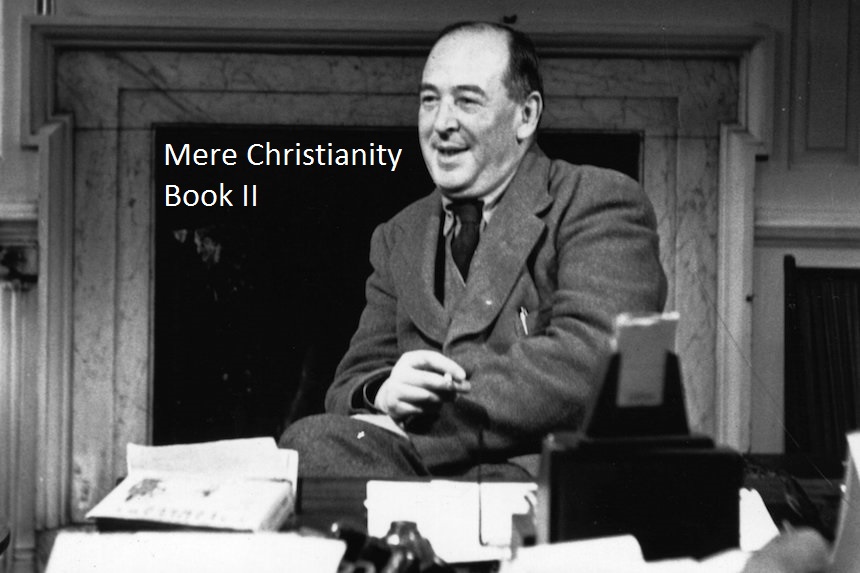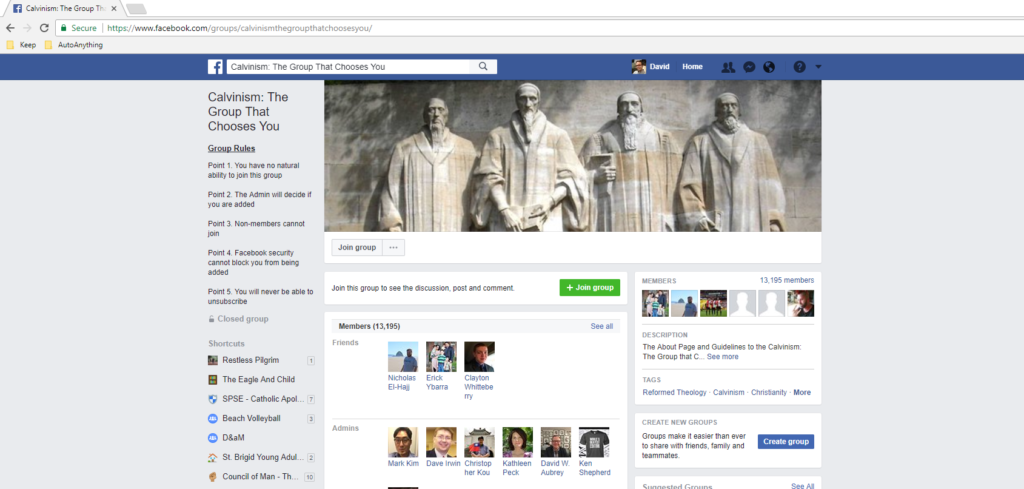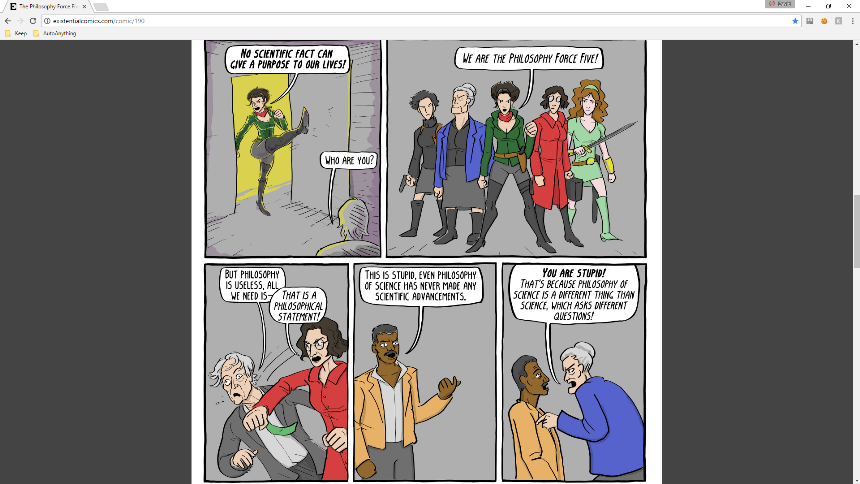
We now come to my notes on the final chapter of Book II of “Mere Christianity”…
Notes & Quotes
1. In Christ, a new kind of life and a new kind of man has appeared
“People often ask when the next step in evolution – the step to something beyond man – will happen. But in the Christian view, it has happened already. In Christ a new kind of man appeared: and the new kind of life which began in Him is to be put into us”
(a) We received our old kind of life from others and in a most unexpected way
“We derived it from others…without our consent – and by a very curious process, involving pleasure, pain, and danger.”
(b) We receive the new life also in an unexpected way
“We must be prepared for it being odd too. He did not consult us when He invented sex: He has not consulted us either when He invented this”
2. We receive this life chiefly through three things: baptism, belief and Holy Communion
(a) These are not the only channels through which this life is communicated
“I am not saying there may not be special cases… [However], if you are trying in a few minutes to tell a man how to get to Edinburgh you will tell him the trains: he can, it is true, get there by boat or by a plane, but you will hardly bring that in”
(b) It is not an either/or proposition
“Anyone who professes to teach you Christian doctrine will, in fact, tell you to use all three… Do not think I am setting up [these]… as things that will do instead of your own attempts to copy Christ”
3. We believe this on the authority of what Jesus taught
“Do not be scared by the word authority. Believing things on authority only means believing them because you have been told them by someone you think trustworthy”
(a) We believe in many things about this world based on authority
“I believe there is such a place as New York. I have not seen it myself. I could not prove by abstract reasoning that there must be such a place. I believe it because reliable people have told me so”
(b) We believe in many things because scientists tell us so
“…the Solar System, atoms, evolution, and the circulation of the blood…”
(c) We believe in history because of authority
“Every historical statement in the world is believed on authority. None of us has seen the Norman Conquest or the defeat of the Armada… We believe them simply because people who did see them have left writings that tell us about them.”
(d) We reject this at our peril
“A man who jibbed at authority in other things as some people do in religion would have to be content to know nothing all his life”
4. This new life may be lost and must be protected
“Your natural life is derived from your parents; that does not mean it will stay there if you do nothing about it…. You have to feed it and look after it: but always remember you are not making it, you are only keeping up a life you got from someone else… even the best Christian that ever lived is not acting on his own steam – he is only nourishing or protecting a life he could never have acquired by his own efforts”
(a) In the same way a body can heal itself, a Christian can repent
“A live body is not one that never gets hurt, but one that can to some extent repair itself. In the same way a Christian is not a man who never goes wrong, abut a man who is enabled to repent and pick himself up and begin over again… because the Christ-life is inside him, repairing him all the time, enabling him to repeat (tin some degree) the kind of voluntary death which Christ Himself carried out”
(b) Anything good comes from this new life
“…the Christian thinks any good he does comes from the Christ-life inside him. He does not think God will love us because we are good, but that God will make us good because He loves us; just as the roof of a greenhouse does not attract the sun because it is bright, but becomes bright because the sun shines on it”
5. This new life is expressed through the Body of Christ
“…the whole mass of Christians are the physical organism through which Christ acts”
(a) This bodily nature explains why the new life is not spread purely through mental acts such as belief
“…but by bodily acts like baptism and Holy Communion… There is no good trying to be more spiritual than God.. God never meant man to be a purely spiritual creature. That is why He uses material things like bread and wine to put the new life into us. We may think this rather crude and unspiritual. God does not: He invented eating. He likes matter. He invented it”
(b) Some might ask if it not unfair that this new life be confined to those who have heard and believed in Christ, but Jack responds by saying…
(i) …we are ignorant in this area
“…God has not told us what His arrangements about the other poeople are. We do know that no man can be saved except through Christ; we do not know that only those who know Him can be saved through Him”
(ii) …that’s not a reason to reject this new life
“…if you are worried about the people outside, the most unreasonable thing you can do is remain outside yourself… If you want to help those outside you must add your own little cell to the body of Christ who alone can help them”
(c) Some ask why God doesn’t invade this world in force…
(i) He will at the Second Coming
“Christians think He is going to land in force; we do not know when”
(ii) His delay may be to give us a chance to join his side freely
“…we can guess why He is delaying. He wants to give us the chance of joining His side freely. I do not suppose you and I would have thought much of a Frenchman who waited till the Allies were marching into Germany and then announced he was on our side”
Discussion Questions
1. Jack describes salvation in terms of a new life. Can you think of Scripture passages where this motif is taken up?
2. How does Jack contrast the old life and the new life, particularly with regards to its strangeness and its mode of reception?
3. What are the primary ways in which Jack says the new life are communicated? On what basis? Do you agree with all these? Is this an exhaustive list? What other ways do you think there are?
4. How does Jack feel about believing something based on authority?
5. What light is shed on the Christian experience by understanding salvation in bodily terms?
6. How does Jack respond to those who complain about the exclusiveness of Christianity?
7. How does Jack reply to those who complain about God’s subtle, elusive action and who would much prefer he “invade in force”?
C.S. Lewis Doodle
I couldn’t find a Doodle 
 I came across another John Finch song, “Saviour of the World”…
I came across another John Finch song, “Saviour of the World”…




